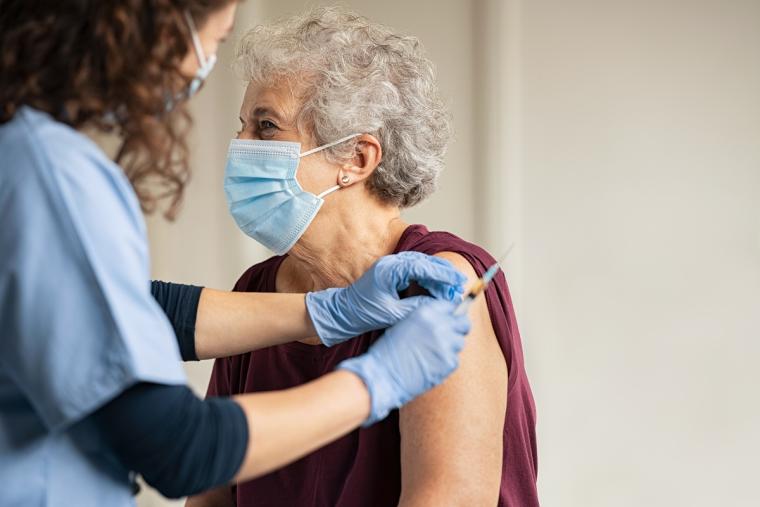- Managing your Practice
-
- Your Benefits
-

Introducing the ultimate Club MD experience
From work to play, and everything in between, we provide you with access to hundreds of deals from recognizable, best-in-class brands, elevating every facet of your life – from practice supports to entertainment, restaurants, electronics, travel, health and wellness, and more. Your Club MD membership ensures that these deals are exclusive to you, eliminating the need to search or negotiate.
Welcome to the ultimate Club MD experience. Your membership, your choices, your journey.
-
- Advocacy & Policy
-
- Collaboration
- News & Events
-

Stay Informed
Stay up to date with important information that impacts the profession and your practice. Doctors of BC provides a range of newsletters that target areas of interest to you.
Subscribe to the President's Letter
Subscribe to Newsletters
-
- About Us
-

COVID-19 vaccines: are they safe?
January 5, 2021
Together for Health
COVID-19 vaccines are arriving in BC representing a significant turning point in the battle against the disease. While supplies are limited, the focus is to deliver the vaccine to the most high-risk groups to start, increasing the number of eligible individuals as supplies themselves increase. While many are excited about the vaccine, others may be hesitant – with so much information about the vaccines out there, it can be hard to separate fact from fiction. So it’s important to know – what’s the truth behind the COVID-19 vaccines?

Is the vaccine safe?
Yes, the vaccine is safe. Even though the overall development and approval timeline for the COVID-19 vaccine was quick, it still underwent the normal, rigorous, three-phase trials while maintaining the same standards in evaluating its safety and efficacy. The COVID-19 vaccine trials were primarily comprised of healthy adults aged 18 – 55 of varying ethnic backgrounds, although some elderly individuals with weakened immune systems were also included.
Was the vaccine developed too quickly?
It was done quickly because creation of the vaccine was a global effort – researchers in countries across the world focussed on a single task and applied lessons learned from the Ebola and Zika viruses. The Covid-19 vaccines underwent normal tests, with the same rigour as other vaccines.
What about mRNA – will I be carrying an artificial substance in my body for the rest of my life?
Not at all, the vaccine will cause an immune response and then be cleared out of the body. While mRNA vaccines are new to the general public, their development actually dates back three decades to the early 90s, and throughout the last five years they have been tested in humans for infectious diseases such as: Zika, Rabies, Cytomegalovirus (CMV), and Influenza. These types of vaccines are also being researched as a way to speed up the immune response in the treatment of certain types of cancers such as leukemia, myeloma, melanoma, and prostate cancer.
The benefits of mRNA and other vaccines is that we get protected without ever experiencing the more serious illness.
How can we know for sure there will be no long-term side effects?
Reports show mRNA vaccines to be safe and reasonably well tolerated with only rare cases of severe reactions comparable to allergic reactions. Similar reactions have been seen with the other vaccines. The COVID-19 vaccine will continue to be evaluated as it rolls out. We expect further reports of similar side effects – this is normal and to be expected and is merely because of the sheer number of people being vaccinated globally.
Isn’t natural immunity better than vaccine-acquired immunity?
Natural immunity is when a person becomes immune to a specific disease after contracting it. With COVID-19, we have seen that re-infection is possible but we can’t know or predict the seriousness or severity of the initial illness or a re-infection. What we do know is the vaccines have upwards of a 90% effective rate. This tells us being vaccinated is the safest option whereas contracting COVID is far more risky.
Aren’t vaccines pointless unless everyone takes them?
The idea behind vaccines is, those who are vaccinated will be protected from becoming infected themselves and will therefore be prevented from spreading the disease, regardless of who else is vaccinated. So, vaccinating yourself against COVID-19 protects not only you, but also vulnerable groups you come into contact with such as babies, pregnant women, and immunocompromised individuals who are not able to be vaccinated.
The creation and distribution of the COVID-19 vaccines is a significant turning point in our battle to overcome COVID-19. It’s important to know the truth behind these vaccines to understand just how safe they are and to understand the vital role they play in protecting you and those around you from the disease.
For more information please visit the BC Centre for Disease Control’s COVID-19 Vaccine page.




